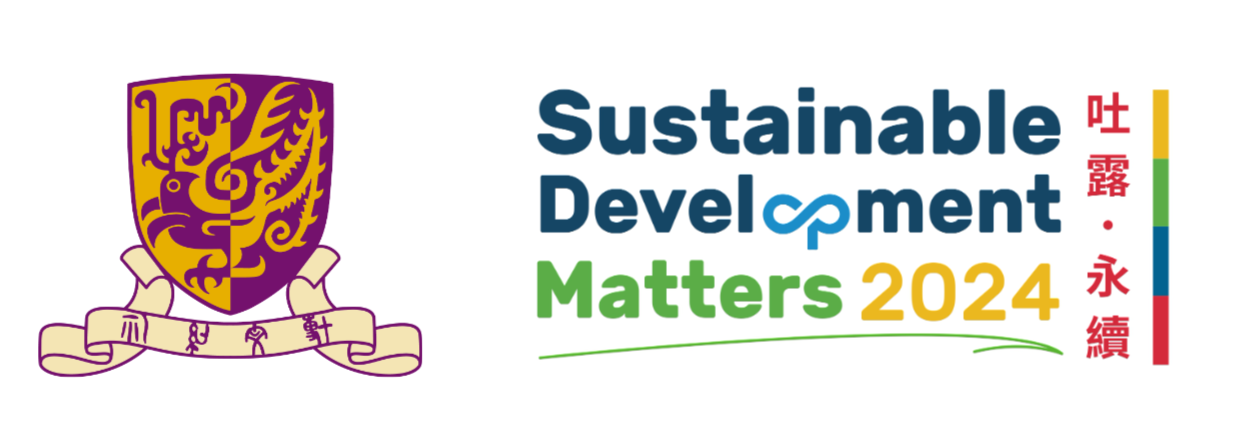SDG 3| Good Health and Well-being
Ensure healthy lives and promote well-being for all at all ages
Curriculum
Policies
The University is committed to providing a safe and healthy environment for its members and visitors. Its University Medical Service Office (UMSO) is charged to provide the university community with high-quality primary health care and health education. CUHK has established a Committee on Health Promotion and Protection to maintain general health on campus and to provide advice on preventive and infection control measures in response to local and global infectious diseases. UMSO is the executive arm of the committee to oversees health campaigns and programmes, including health promotion and vaccination campaigns, psychological health and counselling services, and health seminars.
Research
CUHK and Sinovac Biotech (Hong Kong) Limited signed a Strategic Collaboration Framework Agreement in February 2022 to jointly establish a Biosafety Level Laboratory at CUHK. The laboratory will conduct research in the fields of infectious diseases, immunology, and other related study areas. This academic-industrial collaboration offers more possibilities for research and development in biomedicine between Hong Kong and mainland China, contributing to disease control and prevention.

During the multiple waves of the covid-19 pandemic, the world urgently needed new treatment options to combat the evolving variants. In response, the Clinical Trial Centre collaborated with the CUHK Medical Centre on a clinical trial to evaluate a new oral pipeline JT001 (VV116) for the early treatment of covid-19 patients with mild to moderate infection. The 2-year study enrolled 2,000 subjects across the globe and was Hong Kong’s first involvement in a clinical trial on patients using a novel oral treatment specifically developed for covid-19.
Close to 1.3 million Hong Kong citizens were infected with SARS-CoV-2. Despite months after recovery, many still experience long covid symptoms, including fatigue, poor memory, insomnia and reduced exercise tolerance. However, the exact mechanism underlying the development of long covid remains largely unknown. The CUHK’s Faculty of Medicine conducted a ‘Long Covid in Hong Kong Survey’ with support from the Hospital Authority. The data collected has been presented to the government and will assist in the formulation of an appropriate healthcare policy and the allocation of medical services for people debilitated by long covid.
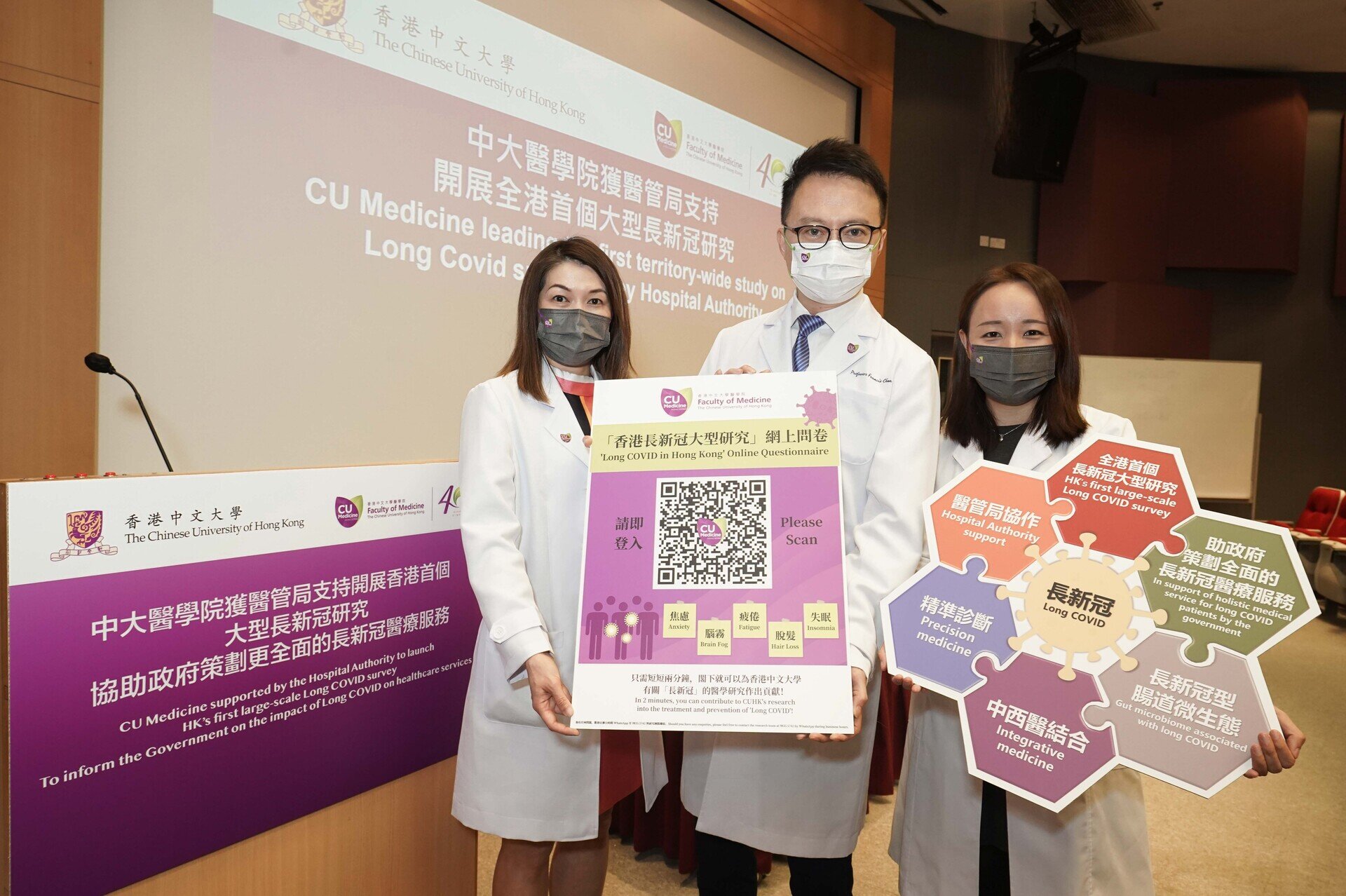
Partnering with the Active Healthy Kids Global Alliance and supported by Sun Life Hong Kong, an interdisciplinary research team from CUHK released the ‘2022 Hong Kong Report Card on Physical Activity for Children and Adolescents’. The report card indicated that Hong Kong performed worst in the categories of ‘Overall Physical Activity’ and ‘Obesity’, while scoring better in ‘Active Transportation’, ‘School’ and ‘Community and Environment’. In response to the report, the team recommended that priority should be given to enhancing parental education, encouraging children’s active play, and investing in supporting sports participation and sports programmes in and beyond the school curriculum.
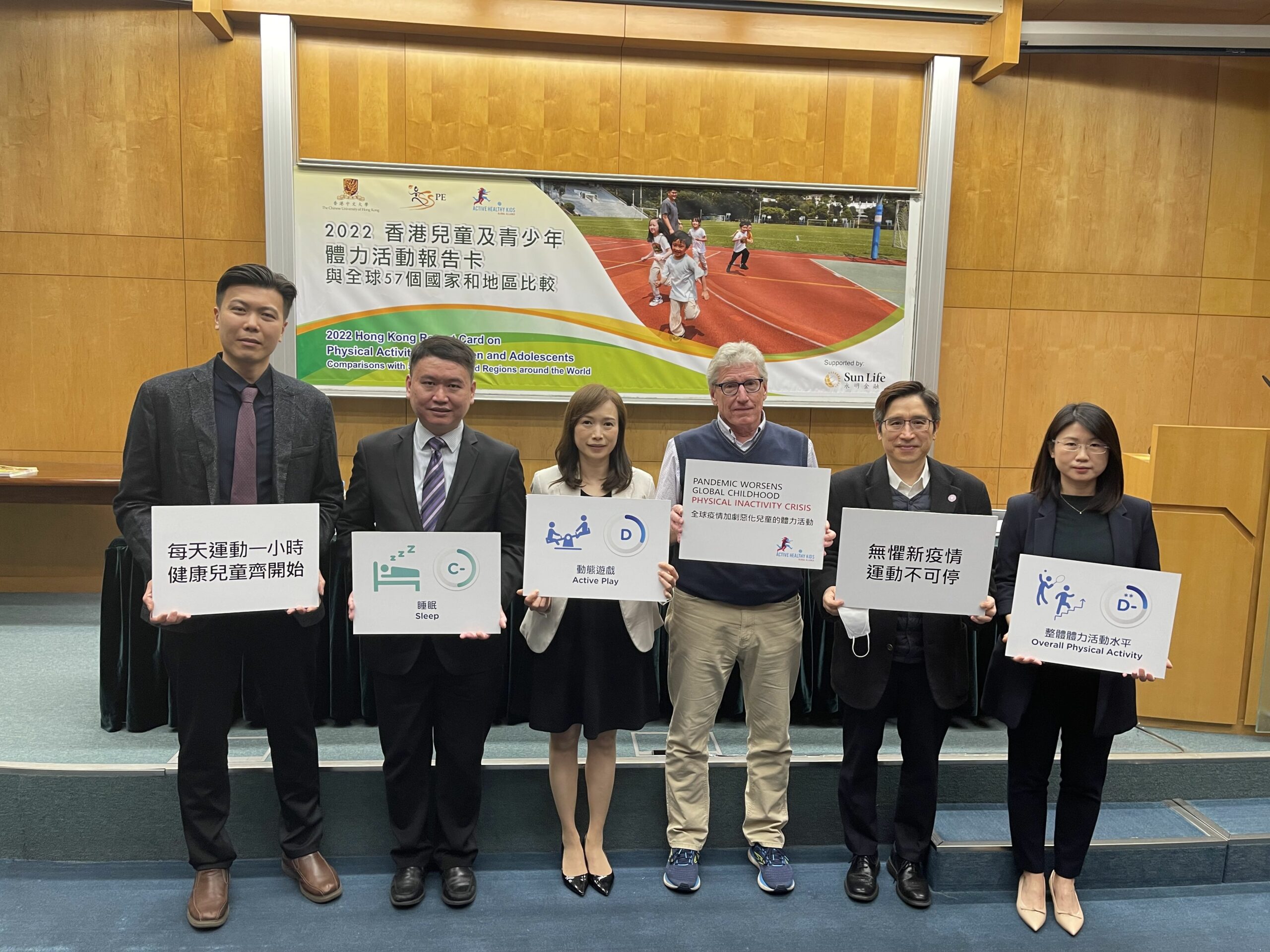
Health outreach at community
Alzheimer’s disease poses a severe threat to Hong Kong’s rapidly ageing population. In partnership with the Charles K. Kao Foundation for Alzheimer’s Disease, the University launched the Charles Kao CUHK BEAT AD Service, which provides free, comprehensive, community-based Alzheimer’s disease screening to Hong Kong residents aged 60 to 80. By identifying the elderly individuals who have early symptomatic Alzheimer’s disease or those who are at risk of the disease, tailor-made preventive measures can be implemented to mitigate the growing burden of dementia and slow its progression. The Charles Kao CUHK BEAT AD Service truck is now stationed on the CUHK campus.
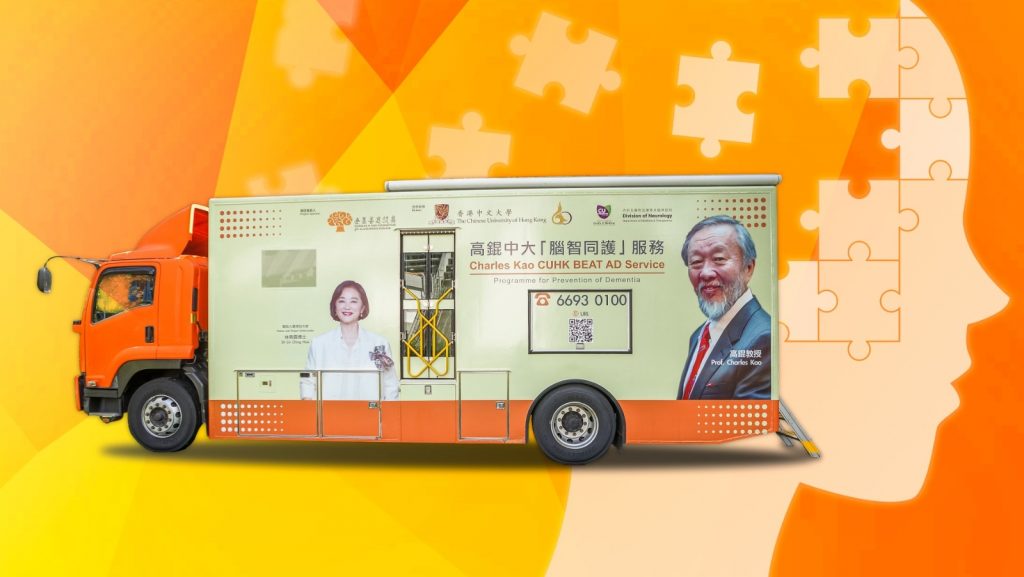
The Department of Orthopaedics and Traumatology brought back its flagship education event, ‘Sports Medicine and Rehabilitation Technology (SMART) Fun Day’ in October 2022 under the theme ‘Love Sport, Play Smart!’ The event serves to promote sport and fitness to the general public, and provide an exchange platform for the public, practitioners and industrial partners in sport-related fields. The SMART Fun Day 2022 featured a series of presentations from physicians and local athletes on professional health and sports knowledge, more than 50 lectures, workshops, and sports exhibitions. These events were open to the general public at no cost.
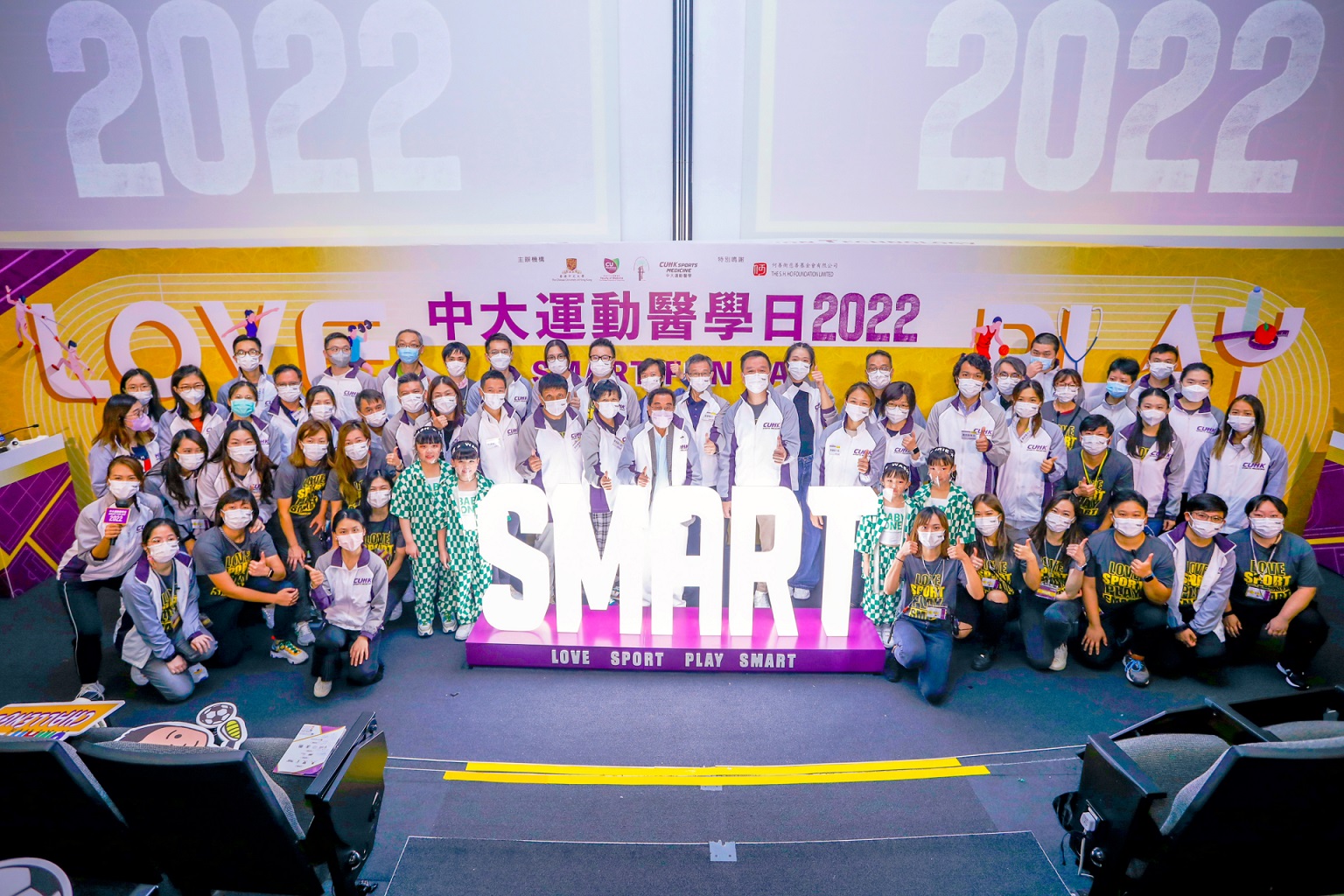
PREVIOUS
Zero Hunger
SDG 2
NEXT
Quality Education
SDG 4
